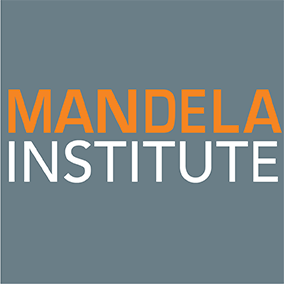Collective Labour Law Practice and Jurisdiction
Application Form
Complete Online Application Form at
/zahrah/display/external/public/163/AabSAeQlpQ#section-intro
Apply By
There are two registration periods:
1st Semester - 4 September 2023 to 31 December 2023
2nd Semester - 4 March 2024 to 31 May 2024
Cost
R13,900.00
Duration & Format
This is a block release course where participants attend daily lectures from 08:30 to 16:30 during the period 6 to11 May 2024. It will also be offered during the period 10 to 17 August 2024. Courses might be delivered through blended learning. Students are required to have basic computer skills and stable internet connection.
Overview
The Collective Labour Law Practice and Jurisdiction postgraduate certificate course examines collective Labour Law rights and jurisdiction in South Africa. To this end it focuses on common law rights, the Constitution and statutory protection. The course further reflects on freedom of association and collective bargaining, Bargaining Councils, statutory councils, trade unions and employer organisations. Assess and evaluate rulings pertaining to subject matter jurisdiction, employment relationships, time violations and territorial jurisdiction. This course can be taken independently or as part of the Labour Dispute Resolution Practice (LDRP) certificate course.
Course Outcomes
At the end of the course participants should be able to:
- Define and discuss the meaning of collective bargaining
- Appraise and distinguish the role that collective bargaining plays in the Constitution and various other legislation
- Discuss and analyse the following: freedom of association, Bargaining Councils, statutory councils, organisational rights, union security arrangements, the right to strike and workplace forums
- Define jurisdiction and interpret the guidelines in conducing jurisdictional applications, and
- Assess and evaluate rulings pertaining to subject matter jurisdiction, employment relationships, time violations and territorial jurisdiction.
Course Content
The course consists of the following modules:
- Collective Labour Law and the global context, collective Labour Law and the Constitution
- Sources of collective Labour Law
- Freedom of association and collective bargaining
- Jurisdiction (including guidelines for conducting jurisdiction applications and writing jurisdictional rulings)
- The CCMA, Bargaining Councils and statutory councils
- Trade unions and employer organisations
- Organisational rights
- Union security arrangements
- The right to strike
- Lock-outs
- Transfer of solvent and insolvent businesses
- Workplace forums
- Dispute resolution processes in collective Labour Law disputes
- Rulings pertaining to employment relationships. This includes the distinction between employees and independent contractors, dealing with labour brokers, outsourcing, franchise agreements, defining an employer in the context of section 197 of the Labour Relations Act, dealing with unlawful contracts (such as sex workers), undocumented migrants, and dealing with an insolvent employer, and
- Rulings pertaining to the time violations (including rules on referrals, service and the requirements for proof thereof and condonation).
Target Audience
Labour lawyers, union leaders, and professionals dealing with collective labour issues.
Application Process
A relevant Bachelor of Laws or Bachelor of Commerce in Law or Bachelor of Arts in Law or equivalent qualification is a prerequisite for admission to the postgraduate certificate courses; OR
Applicants interested in applying to study Labour Dispute Resolution Practice who have any other undergraduate qualifications outside the field of law or labour work experience must complete the free compulsory skills development course Foundations of Commercial Law Practice.
Kindly note that basic computer literacy skills are compulsory for all courses.
You will be required to submit:
- Certified copies of Qualifications and Academic Records
- Certified copy of Identity Document or Passport.
- A detailed Curriculum Vitae
Kindly note that all foreign qualifications must be submitted with a SAQA Evaluation Letter.
Additional Information
The following certificates can be obtained:
- Certificate of Competence: To obtain a certificate of competence, students are required to attend and participate in 75% of the lectures and to complete the assessments as required in the course.
- Please note that a Certificate of Attendance is not available for this course,
This postgraduate certificate course is accredited by the university in accordance with its statutory mandate. It does not lead to a qualification registered on the National Qualifications Framework
Enquiries
Mahlatse Masemola Tel No: +27 11 717 8438; Email mahlatse.masemola@wits.ac.za
Ursula Dillner-Dangor Tel No: +27 11 717 8435; Email: ursula.dillner-dangor@wits.ac.za
Website www.wits.ac.za/mandelainstitute/short-courses/

